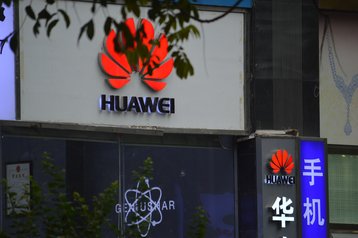In another counteroffensive in its war with China, the United States government has announced the revocation of export licenses previously granted to semiconductor giants Intel and Qualcomm for sales to Huawei Technologies Co. The decision comes amidst ongoing tensions between the US and China, particularly regarding national security concerns and trade disputes.
The revocation of these licenses effectively halts Intel and Qualcomm’s ability to supply crucial components to Huawei, one of the world’s largest telecommunications equipment manufacturers and a key player in the global 5G network infrastructure development. The US Department of Commerce cited national security concerns as the primary reason for the decision, claiming that the export of sensitive technologies to Huawei poses a risk to US interests.
Huawei has long been a focal point of contention in the broader geopolitical rivalry between the US and China. The Trump administration previously targeted the Chinese tech giant with sanctions, accusing it of being a national security threat due to its alleged ties to the Chinese government. These measures severely restricted Huawei’s access to crucial technologies, including semiconductor chips, which are essential for the production of smartphones and networking equipment.
The latest move to revoke export licenses for Intel and Qualcomm marks another escalation in the ongoing technology Cold War between the two economic superpowers. It not only disrupts Huawei’s global supply chain but also raises concerns about the broader implications for the semiconductor industry and the future development of 5G technology.
“Huawei is a threat,” US Commerce Secretary Gina Raimondo had said, after a congressional hearing yesterday.
Intel and Qualcomm are among the leading suppliers of semiconductor chips, with their products powering a wide range of electronic devices, including smartphones, laptops, and networking equipment. The revocation of their export licenses could not only impact their revenues but also disrupt the global supply chain, potentially affecting other companies that rely on their components.
The decision also underscores the increasing use of export controls as a tool in geopolitical conflicts. By restricting the export of critical technologies, the US government aims to exert pressure on Huawei and, by extension, the Chinese government. However, such measures risk further exacerbating tensions and could have unintended consequences for the global economy.
Since the global uncoupling, Intel shares have lost nearly 38% so far this year.
In response to the revocation of their export licenses, both Intel and Qualcomm have expressed disappointment and stated their commitment to compliance with US regulations. However, the impact of this decision on their businesses and the wider semiconductor industry remains to be seen.The US and China are increasingly decoupling their telecommunications infrastructure in a tense standoff, and the US government’s latest action against Huawei reflects the complex interplay between national security concerns, economic interests, and geopolitical rivalries.





